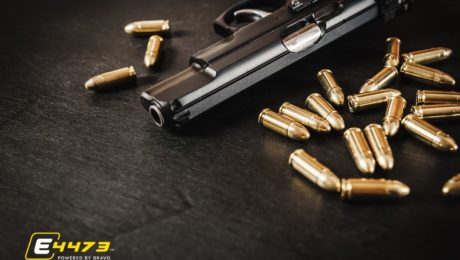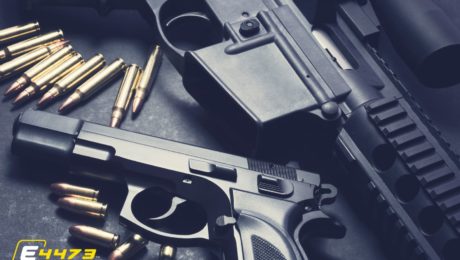A Comprehensive Guide to FFL Gun Fees: A B2B Perspective Understanding FFL Gun Fees: A Crucial Aspect of Firearms Business As a business operating in the firearms industry, understanding FFL (Federal Firearms License) gun fees is paramount. These fees can significantly impact your bottom line, especially if you’re dealing with high-volume transactions. In this comprehensive guide, we’ll delve into the intricacies of FFL gun fees, exploring various factors that influence them and providing practical tips to manage your costs effectively. What are FFL Gun Fees? FFL gun fees are charges imposed on licensed firearms dealers for the services they provide. These fees typically cover the administrative costs associated with processing firearm transfers, maintaining compliance with federal regulations, and ensuring the safety and security of firearms. Factors Influencing FFL Gun Fees Several factors can influence the specific FFL gun fees you’ll encounter: Type of FFL: The type of FFL you hold will determine the fees you’re subject to. For instance, a Type 01 dealer (retailer) might face different fees compared to a Type 07 (manufacturer). Federal Regulations: Changes in federal firearms regulations can impact FFL fees. For example, new compliance requirements might lead to increased administrative burdens, which could result in higher fees. State and Local Laws: In addition to federal regulations, state and local laws can also influence FFL gun fees. Some jurisdictions may impose additional fees or restrictions on firearms dealers. Volume of Transfers: The number of firearm transfers you handle will generally affect your overall fees. Dealers with higher volumes may be able to negotiate better rates or discounts. Transfer Type: The type of transfer (e.g., retail sale, private party transfer, consignment) can also influence fees. Some transfers might involve more complex paperwork or administrative procedures, leading to higher costs. FFL Provider: Different FFL providers may charge varying fees for their services. It’s essential to compare rates and services to find the most cost-effective option. Common FFL Gun Fee Components While the specific breakdown of FFL gun fees can vary, the following components are often included: Transfer Fees: Charges for processing firearm transfers, including background checks, paperwork, and administrative costs. ATF Fees: Fees imposed by the Bureau of Alcohol, Tobacco, Firearms, and Explosives (ATF) for licensing and compliance purposes. NFA Fees: Fees associated with National Firearms Act (NFA) items, such as suppressors or machine guns. Storage Fees: Charges for storing firearms on behalf of customers. Additional Services: Fees for services beyond the basic transfer process, such as shipping or insurance. Managing FFL Gun Fees: Practical Tips Negotiate Rates: If you have a high volume of transfers, consider negotiating with fellow FFLs for better rates or discounts. Review Fees Regularly: Periodically review your FFL gun fees to ensure they remain competitive and aligned with your business needs. Minimize Administrative Burdens: Streamline your operations to reduce administrative overhead and associated costs. Stay Informed about Regulations: Keep up-to-date with federal, state, and local firearms regulations to avoid penalties and unnecessary expenses. Pass Fees on to Customers: In some cases, you may be able to pass a portion of your FFL gun fees on to your customers. However, it’s important to be transparent about your pricing structure. Understanding FFL gun fees is crucial for any firearms business. By understanding the factors that influence these fees and implementing effective management strategies, you can minimize costs and maximize your profitability. By following the guidelines outlined in this guide, you can make informed decisions regarding your FFL fees and ensure your business remains competitive in the firearms industry.
A Comprehensive Guide to FFL Firearm Meaning: A B2B Perspective Understanding FFL Firearms: A Crucial Aspect of Firearms Business As a business operating in the firearms industry, understanding the concept of FFL firearms is paramount. This term, often used interchangeably with FFL-regulated firearms, encompasses a wide range of weapons subject to federal regulations. In this comprehensive guide, we’ll delve into the intricacies of FFL firearms, exploring their definitions, types, and the significance of FFL licensing in the firearms industry. What are FFL Firearms? FFL firearms are firearms that are regulated by the Bureau of Alcohol, Tobacco, Firearms, and Explosives (ATF) and require a Federal Firearms License (FFL) for their manufacture, importation, or sale. These firearms include a variety of weapons, such as: Handguns: Pistols, revolvers, and other firearms designed to be held with one hand. Rifles: Firearms designed to be fired from the shoulder, typically using longer barrels. Shotguns: Firearms designed to fire multiple projectiles, such as buckshot or birdshot. Destructive Devices: Weapons, such as grenades, machine guns, and silencers, that are capable of causing significant damage. The Significance of FFL Licensing FFL licensing is a crucial aspect of the firearms industry. It ensures that businesses dealing in firearms adhere to federal regulations, preventing the illegal trafficking of weapons and promoting public safety. By obtaining an FFL, businesses can legally engage in the manufacture, importation, and sale of firearms, subject to specific requirements and restrictions. FFL License Types There are several FFL License types available, each with its own specific requirements and limitations. These include: Type 01: Dealer in firearms other than destructive devices. Type 02: Pawnbroker in firearms other than destructive devices. Type 03: Manufacturer of firearms. Type 07: Manufacturer of ammunition. Type 08: Importer of firearms. Type 09: Dealer in destructive devices. Key Regulations for FFL Firearms FFL firearms are subject to various federal regulations, including: Gun Control Act of 1968: This act established the framework for regulating the sale and possession of firearms in the United States. National Firearms Act (NFA): The NFA imposes additional regulations on certain types of firearms, such as machine guns, suppressors, and short-barreled rifles. Anti-Drug Abuse Act of 1988: This act imposed stricter regulations on the sale and possession of firearms, particularly those associated with drug trafficking. Compliance and Recordkeeping FFL holders are required to comply with strict recordkeeping requirements. They must maintain accurate records of all firearms transactions, including sales, purchases, and transfers. Additionally, FFL holders must conduct background checks on all purchasers to ensure they are not prohibited from owning firearms. Understanding the concept of FFL firearms and FFL License types is essential for businesses operating in the firearms industry. By comprehending the different types of FFL firearms, the significance of FFL licensing, and the applicable regulations, you can ensure that your business complies with federal laws and operates ethically. This knowledge will also help you navigate the complexities of the firearms industry and make informed decisions regarding your business operations.
ATF Forms in New Hampshire: A Comprehensive Guide with Bravo Store Systems Understanding ATF Forms in New Hampshire ATF Forms are essential documents for anyone involved in the firearms industry or the purchase of firearms in New Hampshire. These forms serve as records of firearms transactions and help ensure compliance with federal and state firearms laws. Key ATF Forms Used in New Hampshire ATF Form 4473: The most common ATF form used for firearm purchases. It collects information about the buyer, seller, and firearm. ATF Form 1: Used by individuals who want to manufacture a firearm that is regulated by the National Firearms Act (NFA). ATF Form 2: Used by manufacturers and importers of NFA firearms to register their products. ATF Form 3: Used for tax-exempt transfers of NFA firearms between licensed dealers. ATF Form 4: Used for tax-paid transfers of NFA firearms to individuals. ATF Form 5: Used for tax-exempt transfers of NFA firearms to certain governmental entities. Rules and Regulations for ATF Forms in New Hampshire Federal Firearms License (FFL): To legally sell firearms in New Hampshire, you must hold a valid FFL. This license is issued by the ATF and requires a thorough background check, payment of a fee, and compliance with federal regulations. Recordkeeping: FFL holders in New Hampshire must maintain accurate and complete records of all firearm transactions, including ATF Forms. These records must be retained for a minimum of five years. Prohibited Persons: Certain individuals are prohibited from purchasing or possessing firearms in New Hampshire, such as felons, domestic abusers, and those with certain mental health conditions. FFL holders are responsible for verifying the eligibility of buyers using the National Instant Criminal Background Check System (NICS). Background Checks: Before transferring a firearm, FFL holders in New Hampshire must conduct a background check on the buyer using the National Instant Criminal Background Check System (NICS). This system is operated by the FBI and allows for instant checks of a buyer’s criminal history. Import and Export: The import and export of firearms is subject to strict federal regulations. FFL holders in New Hampshire must comply with these regulations when dealing with firearms that cross state or international borders. New Hampshire-Specific Regulations: In addition to federal regulations, New Hampshire has its own state firearms laws. These laws can vary depending on the type of firearm, the purpose of the transfer, and other factors. FFL holders in New Hampshire must be familiar with these state-specific regulations. Bravo Store Systems: A Comprehensive Solution for ATF Forms in New Hampshire Bravo Store Systems offers a powerful and efficient solution for managing firearms transactions and ensuring compliance with ATF Forms in New Hampshire. Our software can help FFL holders: Automate ATF Form Processing: Our software can automatically generate and process ATF Forms, reducing errors and saving time. Streamline Recordkeeping: Bravo Store Systems can help you maintain organized and easily accessible records of all firearm transactions, including ATF Forms. Conduct Background Checks: Our software integrates with NICS, making it easy to conduct background checks on buyers. Manage Inventory: Keep track of your firearm inventory, including serial numbers, make, model, caliber, and other relevant information. Generate Reports: Generate various reports to analyze sales trends, identify inventory shortages, and monitor compliance with regulations. Integrate with New Hampshire-Specific Requirements: Bravo Store Systems can be configured to comply with New Hampshire-specific firearms laws, such as reporting requirements and prohibited firearm lists. Additional Considerations for ATF Forms in New Hampshire Concealed Carry Permits: New Hampshire has laws governing the issuance and use of concealed carry permits. FFL holders in New Hampshire may need to be aware of these laws and how they affect firearm sales. Hunting and Fishing Regulations: New Hampshire has specific regulations regarding the use of firearms for hunting and fishing. FFL holders may need to be familiar with these regulations to ensure compliance. Private Transfers: In some cases, individuals in New Hampshire can transfer firearms to each other without involving an FFL holder. However, there are specific requirements and restrictions that must be followed. ATF Forms are essential for compliance with firearms regulations in New Hampshire. By understanding the rules and regulations associated with these forms and utilizing a comprehensive solution like Bravo Store Systems, you can ensure compliance with federal and state laws and protect your business.
Streamlining Firearm Sales: A Guide to Gun Form 4473 for FFLs As a Federal Firearms Licensee (FFL), ensuring smooth and compliant firearm transfers is paramount to your business. Gun Form 4473 plays a central role in this process. This guide equips your team with the knowledge to handle Gun Form 4473 efficiently, maximizing customer satisfaction and minimizing potential hiccups. But what if there was a way to revolutionize this process entirely? Meet E4473, the all-in-one solution designed to streamline Gun Form 4473 completion and transform your FFL operations. Gun Form 4473: The Cornerstone of Compliant Sales Every firearm transfer from your establishment necessitates the completion of Gun Form 4473, a federal document mandated by the Bureau of Alcohol, Tobacco, Firearms and Explosives (ATF). This form serves a multifaceted purpose: Background Checks: Gun Form 4473 initiates mandatory background checks through the National Instant Criminal Background Check System (NICS) [1]. A crucial step in verifying the customer’s eligibility to own a firearm. Customer Identification: The form captures the buyer’s personal information, including name, address, and government-issued ID details. This ensures the firearm reaches the authorized recipient. Firearm Details: Gun Form 4473 documents the specifics of the firearm being transferred, such as make, model, and serial number. This information aids in ATF record-keeping and tracking. Legal Affirmations: The form poses a series of questions the buyer must answer truthfully under penalty of law. These questions pertain to their legal eligibility to own a firearm, identifying any disqualifying factors. The FFL’s Pain Points with Gun Form 4473 Let’s face it, the traditional Gun Form 4473 process can be cumbersome for both you and your customers. Here are some common pain points FFLs experience: Time-Consuming Completion: Paper forms lead to errors and require manual data entry, extending transaction times. Inaccurate Information: Handwritten forms are prone to mistakes, potentially delaying transfers or causing compliance issues. Inefficient Customer Experience: Customers may find the paper-based process confusing or frustrating, impacting satisfaction. Manual Recordkeeping: Maintaining physical copies of Gun Form 4473s is cumbersome and requires dedicated storage space. Introducing E4473: The Solution to Your Gun Form 4473 Woes E4473 streamlines the entire Gun Form 4473 process, transforming it from a paper-based hassle into a digital breeze. Here’s how E4473 empowers your FFL business: Digital Forms & Workflows: E4473 eliminates paper forms. Customers can complete Gun Form 4473 securely and conveniently on their smartphones, tablets, or in-store kiosks. Automated Error Detection: Built-in logic identifies potential errors in real-time, preventing delays and ensuring accuracy. Seamless NICS Integration: E4473 seamlessly integrates with the NICS background check system, expediting the process. Beyond Efficiency: The Customer Experience Advantage E4473 doesn’t just benefit your internal operations; it also elevates the customer experience. Here’s how: Faster Transactions: Streamlined digital forms lead to quicker completion times, getting customers out the door faster. Improved Accuracy: Automated error detection minimizes mistakes and ensures a smooth buying process. User-Friendly Interface: E4473 boasts a user-friendly interface, guiding customers effortlessly through the form. Investing in Efficiency: The E4473 Advantage E4473 is more than just software; it’s an investment in the future of your FFL business. By streamlining Gun Form 4473 completion, you can: Reduce Costs: Minimize wasted time and resources associated with paper forms. Increase Efficiency: Boost transaction speed and free up staff time for other tasks. Enhance Customer Satisfaction: Provide a faster, more user-friendly buying experience. Ensure Compliance: Maintain accurate and secure records effortlessly. Gun Form 4473 is a crucial part of every FFL firearm transfer, but the traditional paper process can be cumbersome. This guide explores the importance of Gun Form 4473 and the challenges FFLs face. It then introduces E4473 as a solution, revolutionizing Gun Form 4473 completion with a digital platform that reduces errors, streamlines workflows, and enhances customer experience, ultimately saving FFLs time, money, and headaches. Overall, E4473 helps your FFL business operate smoother, save money, and provide a more positive customer experience.
The safest way to sell firearms
Schedule your FREE live demo today to see E4473 in action.
![]()





